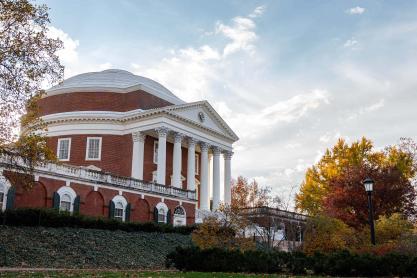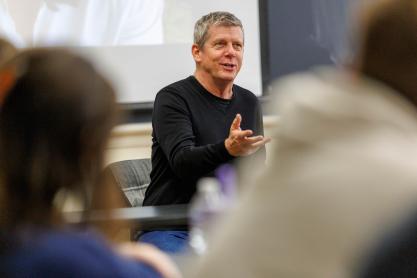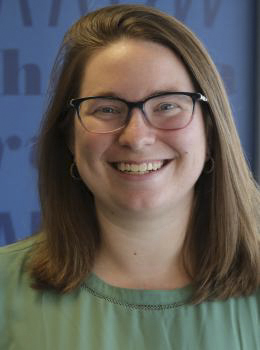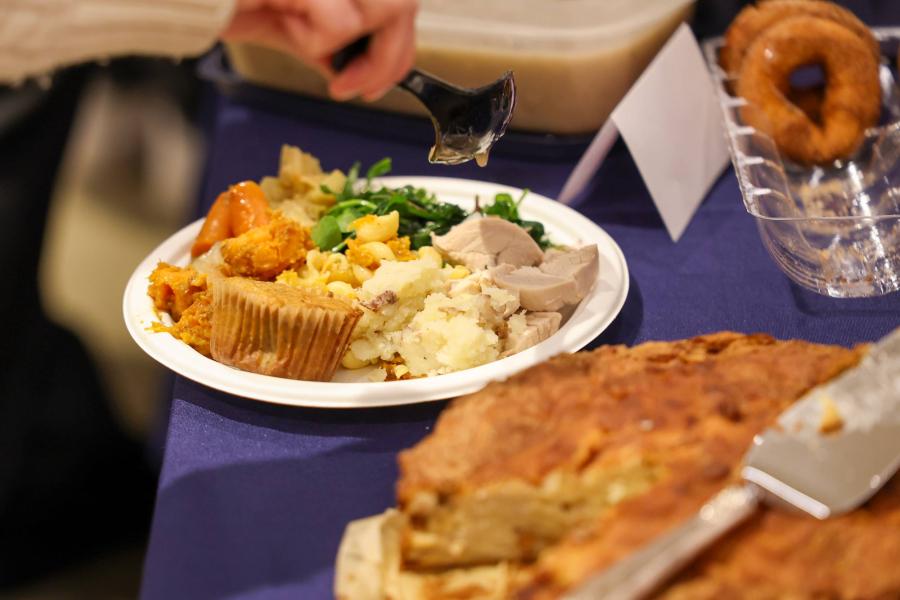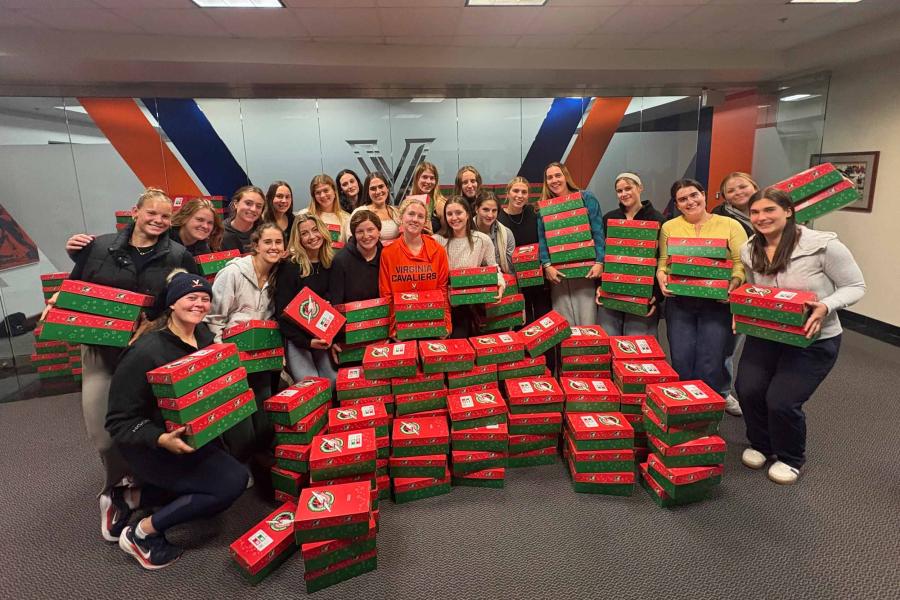I really encourage students to copy the job descriptions for any job that they’re applying to, because they sometimes get taken down during the interview stage. A student may have applied to 10 different companies and get that interview offer and be like, “I don’t remember what this job entails.” Having that job description to go back to can be a really helpful tool for getting prepared for the interview.
Q. Can you describe the different aspects of the recruiting process and what students should be aware of?
A. I would say there are a lot of different nuances behind all of these industries, but some commonalities that you’ll see in the recruitment process is that you’re almost always going to need to have a solid résumé that you can submit for an application. A lot of applications look for cover letters as well. And so those are two really great pieces of the process that students can start to get a head start on.
Students may wish to begin thinking about applying to jobs three or five months before they want to start. So if a student is looking for an opportunity and hoping to start in May, February and March, I think, are really good times to be looking for those opportunities because you can get through the whole application cycle before the summer gets started.
Q. What is your best advice for students, especially fourth-year students, who are on the hunt for jobs right now?
A. I would say one of the best things they can do is try and figure out a schedule that is going to work for them for the job search process. A job search process takes time. It takes time to make your résumé. It takes time to make cover letters. It takes time to do interviews. Students are also doing a lot of really great things. They still have classes that need to be completed. They still have all their extracurriculars. And they are just enjoying being in their fourth year.
So, I usually recommend that one of the best things they can do is create some type of organizational structure for themselves. Maybe they keep track of all the jobs that they’ve applied do with their deadlines in an Excel spreadsheet. Maybe every Tuesday, they meet up with a friend in a coffee shop to do job applications together. It’s really whatever helps to get them started. But getting that started early can help, so it doesn’t feel too overwhelming.
Q. How can students engage with the Career Center?
A. There are a lot of different ways that they can engage with the Career Center for the application materials. We have our standard appointments that students can always access. We do drop-ins Monday through Friday from 1 to 4:30 p.m., where they can just come in whenever they have time. It’s first-come, first-served, and they can come in for a 10- to 15-minute conversation with a counselor. They can also schedule a 30-minute appointment with a counselor, to really go in depth on their application materials.
But sometimes they don’t have time or those options don’t work with their classes. We also have a lot of virtual resources on the Career Center website – sample résumés and cover letters, a really awesome tool called VMock, which lets them get some quick AI analysis of their résumé. That’s a really great tool if they’re looking to apply to something and it’s 11 o’clock at night and they just need a glance over their résumé.
Q. How should students prepare for a virtual interview?
A. I would say one of the best things a student can do when they get an interview offer is to really take some time and learn about how the interview is going to be set up. We’re still seeing both virtual and in-person interviews happening, and how you prepare for those is going to be a little bit different. If it’s virtual, ask the employer how long the interview will be and what kind of platform they will be using. Doing that kind of information collection is really vital.
One of the best things you can do for any interview is practice, practice, practice. Get yourself comfortable with answering interview questions. With a virtual interview, a lot of times they’re held on platforms like Zoom, which students are familiar with and have access to, so they can practice pulling up Zoom on their computer, seeing what their background looks like, making sure it’s not too cluttered and very professional, recording questions and hearing themselves back. VMock also has a platform where they can practice their elevator pitch.
Q. What are some other questions you recommend students ask employers?
A. We have an entire section on interviewing [on our website] which includes sample interview questions, the questions they might get from employers and an entire page of questions you can ask employers.
One really good question to always ask is what the timeline is for the process. Will there be another round of interviews before they hear back? That can give the student a lot more information on how to set expectations for the process.
They can ask the interviewer what they like most about working at that organization. That can really help the student get a better feel of the work environment.
Q. What should first-, second- and third-year students looking for internships be doing right now?
A. This is a good question and I think it’s one we get from students all the time. Particularly during the pandemic, I feel like sometimes students feel they haven’t had as many opportunities to get involved in this virtual environment, and that makes them feel a little uncertain as they’re approaching the internship search. Students usually have more experience than they think they do.
One of the best benefits of coming to talk to a career counselor is that we can kind of talk through, “Oh, maybe we can include your coursework on your résumé, because that’s still really great experience in terms of written communication.” Maybe that’s something the employer is looking for. That’s the first thing I always point out to students. You probably have more experience than you think you do. Don’t let that stop you from applying.
The second thing that can be really helpful is just getting involved in things that interest them. When they’re applying for internships, the people who are reviewing résumés and doing these interviews, they want to see what the student is interested in. So, get involved in a club, even if it might not be directly attached to a career pathway you’re exploring. It still shows that you can manage your time on top of classes. It shows that you have interest areas. It shows that you can work in a team environment. Any type of involvement can be positive involvement.
And the third thing I typically would recommend to students is to really just do some research into the different industries where they might be interested in doing an internship. What skills is that industry looking for? And maybe that’s something that you can start working on and developing while you’re in school. This is when we’re seeing a lot of internships get posted [on Handshake], too.
Q. What are some upcoming Career Center events you would suggest students check out?
A. We partner with Georgetown University and a couple other schools for the virtual government, education and nonprofit career fair happening on Feb. 18. We also have a virtual marketing, public relations and advertising career fair, which is happening on Feb. 22. We’ll do something called the Capitol Hill Résumé Book in the months of February and March, as well. It’s a great opportunity for students to network with our alumni on The Hill. This semester’s résumé book will be open from Feb. 28 to March 21. It will be posted in Handshake closer to Feb. 28.
We have a lot of smaller events, too. Sometimes I think the virtual career fairs can be a little overwhelming for students. But if they sign up for any of our Career Center newsletters, they can also hear about some of these smaller networking or educational programs, too.



